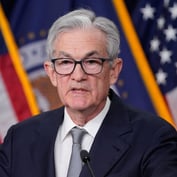(Bloomberg) — After reeling from budget shortfalls since cutting income-tax rates three years ago, Kansas is considering a once-popular fix for cash-strapped governments: bonds secured by the money received under the 1998 settlement with tobacco companies.
See also: Corbett: Pa. Health Program is Broke
The sale would be the first offering of the securities in the U.S. municipal market since March 2015 as the decline in smoking over the past decade cuts into the annual payouts, leaving less to borrow against. States and localities have already sold $34 billion of the bonds, a niche that’s rallied as cigarette sales steadied last year and investors plowed into higher-yielding debt while interest rates held near a half-century low.
“The demand side is pretty strong for securitized tobacco bonds,” said David Hammer, who oversees about $40 billion as co-head of municipal bonds at Pacific Investment Management Co. in New York. “A number of states have looked to tobacco securitizations to plug budget gaps over the years, and I am sure we can expect to see more.”
The proposal floated by Republican Governor Sam Brownback illustrates the continuing financial pressure on the state, which borrowed $1 billion in August to shore up the employee retirement system. It has since had to cut spending for higher education and plans to put off pension contributions after tax collections fell short of its forecasts. In late 2015, Kansas borrowed $400 million for transportation after using highway funds for other expenses.
See also: Minn. Blue Starts Statewide Wellness Program
The prospective debt sale — which would need approval from the legislature — has drawn criticism for failing to permanently address the state’s budget problems and for potentially siphoning money away from children’s programs now paid for with the approximately $60 million a year received from the settlement. That includes mental health services, child-care assistance and hearing programs, among others, said Shannon Cotsoradis, president of Kansas Action For Children, an advocacy group.
“Selling bonds backed by this money is a one-time fix that comes with a high price tag,” she said.
Kansas could get $474 million to $782 million through a tobacco bond-sale, depending on how much of the settlement money it wants to pledge. Lawmakers will weigh the idea later this month after they return from a recess and officials receive new revenue estimates, according to Eileen Hawley, Brownback’s spokeswoman.
Since deep cuts to income-tax rates became effective in 2013, Kansas has patched budgets shortfalls with one-time fixes that leave it facing deficits again when the next year begins. “The question is how are you going to solve the problem next year?” said Dave Hitchcock, senior director at Standard & Poor’s.
Brownback, a former U.S. Senator who became governor in 2011, had said his state could become a model, predicting the lower levies would strengthen the economy and create more jobs and tax revenue. Kansas has since seen revenue fall short of forecasts, and in 2014 its economy expanded by 1.4 percent, compared with 2.2 percent for the U.S. overall.








 April 15, 2016 at 09:04 AM
April 15, 2016 at 09:04 AM










